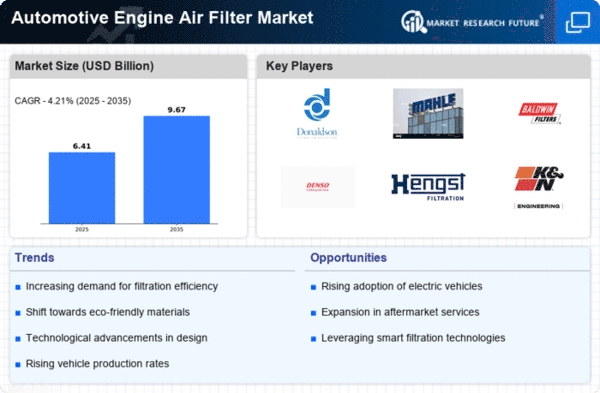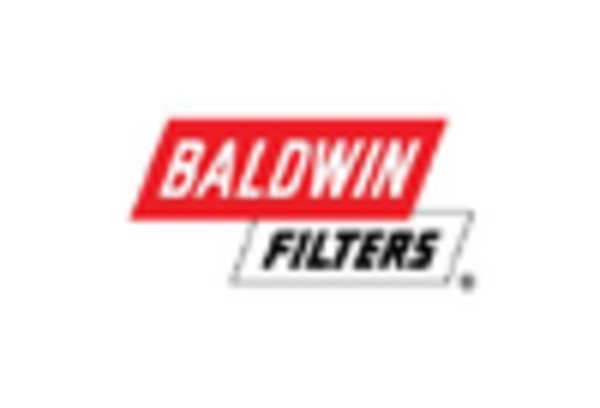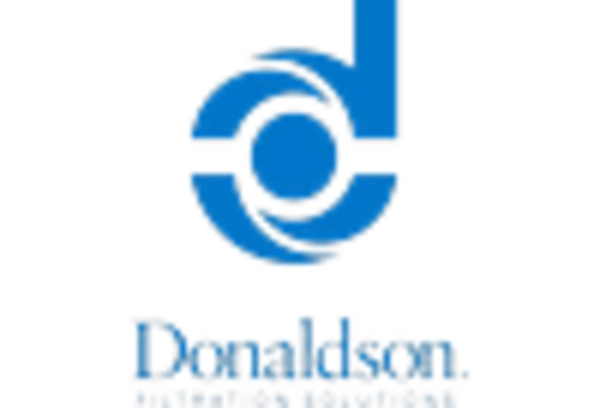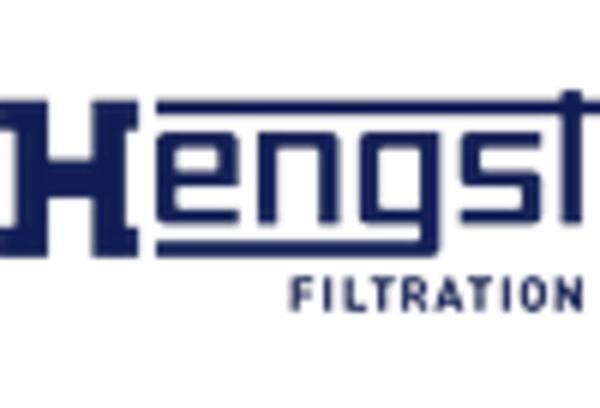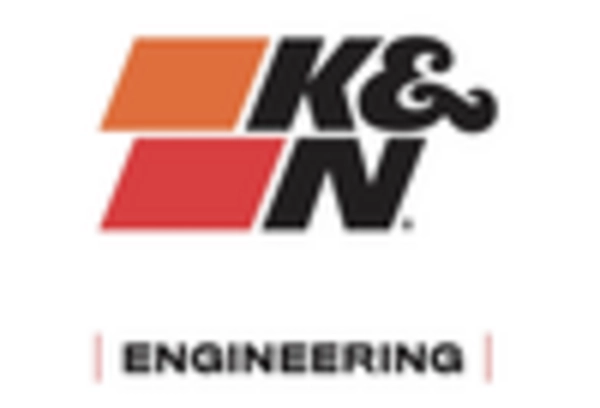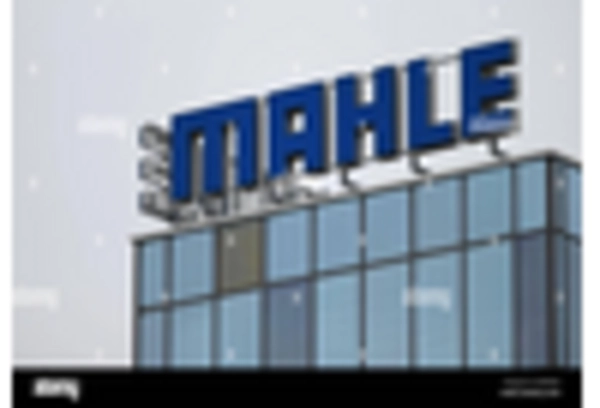North America : Market Leader in Air Filters
North America is poised to maintain its leadership in the automotive engine air filter market, holding a significant market share of 2.8 in 2024. The region's growth is driven by increasing vehicle production, stringent emission regulations, and a rising focus on fuel efficiency. Additionally, the demand for advanced filtration technologies is on the rise, supported by government initiatives promoting cleaner automotive technologies.
The competitive landscape in North America is robust, featuring key players such as Donaldson Company, K&N Engineering, and Fram Group. The U.S. stands out as the leading country, with a strong automotive manufacturing base and a growing aftermarket for replacement filters. The presence of established companies and continuous innovation in filter technology further solidify North America's position in the global market.
Europe : Emerging Market Dynamics
Europe's automotive engine air filter market is projected to grow, with a market size of 1.7 in 2024. The region benefits from stringent environmental regulations and a shift towards electric vehicles, which drives demand for high-efficiency air filters. Additionally, the increasing awareness of air quality and health impacts is propelling the market forward, as consumers seek better filtration solutions for their vehicles.
Leading countries in this region include Germany, France, and the UK, where major manufacturers like Mann+Hummel and Mahle GmbH are based. The competitive landscape is characterized by innovation and collaboration among key players, focusing on developing advanced filtration technologies. The European market is also witnessing a rise in partnerships aimed at enhancing product offerings and sustainability initiatives.
Asia-Pacific : Rapid Growth and Innovation
The Asia-Pacific automotive engine air filter market is on an upward trajectory, with a market size of 1.5 in 2024. This growth is fueled by increasing vehicle production, urbanization, and rising disposable incomes in countries like China and India. Additionally, government regulations aimed at improving air quality are driving demand for efficient air filtration systems in vehicles, making this region a focal point for market expansion.
China is the leading country in this market, with significant contributions from local manufacturers and global players like Denso Corporation. The competitive landscape is evolving, with a mix of established companies and new entrants focusing on innovation and cost-effective solutions. The region's emphasis on sustainability and environmental compliance is further shaping the market dynamics, encouraging advancements in air filter technologies.
Middle East and Africa : Untapped Market Potential
The Middle East and Africa automotive engine air filter market, though smaller at 0.15 in 2024, presents significant growth opportunities. The region is witnessing an increase in vehicle ownership and a growing awareness of air quality issues, which are driving demand for automotive air filters. Additionally, government initiatives aimed at improving environmental standards are expected to catalyze market growth in the coming years.
Countries like South Africa and the UAE are emerging as key players in this market, with a mix of local and international manufacturers. The competitive landscape is gradually evolving, with companies focusing on enhancing product quality and expanding distribution networks. As the automotive sector continues to grow, the demand for efficient air filtration solutions is likely to rise, making this region an attractive market for investment.


